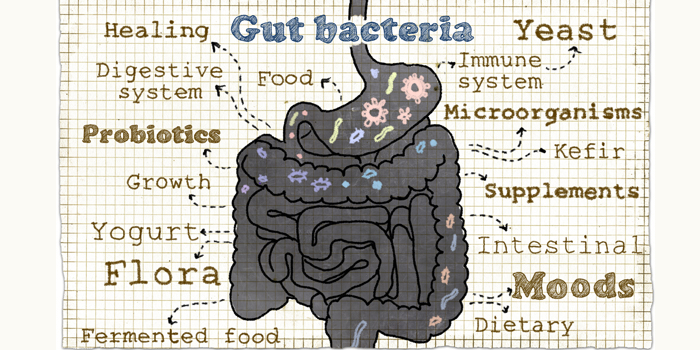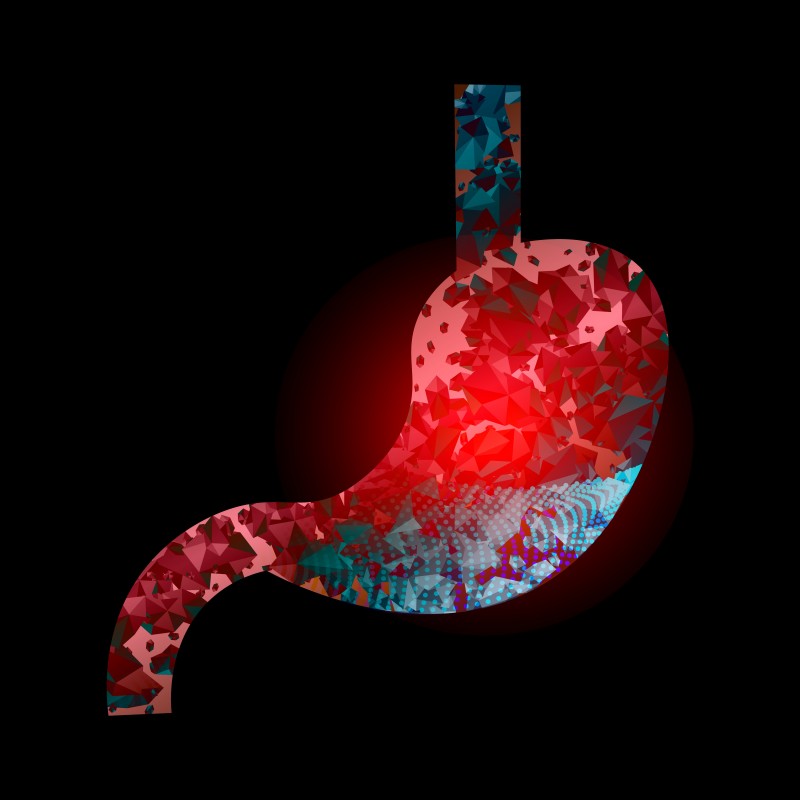
Gut health is often associated with kombucha, quick-fix cleanses, and questionable practices. This certainly does not come to mind when people think of a strength athlete. The connotation of the gut for decades prior would be a powerlifter merely bracing his pancake-filled gut against his lever belt, or bodybuilders testing their digestive limits in an offseason phase.
To be clear, we are talking about more than claiming your throne and hitting the restroom daily. We are talking about modernized gut health with a focus on the performance-focused strength athlete or bodybuilder.
Let’s start with the basics: You eat food to nourish your cells. If you make poor food choices, or if your body cannot digest, absorb, and utilize the food due to a poor digestive function, you might develop signs, symptoms, and/or a diagnosable illness.
Digestive insufficiencies contribute to a wide range of health issues, including headaches, depression, arthritis, foggy thinking, autoimmune illness, autism, fibromyalgia, chronic fatigue, multiple sclerosis, and more.
Not sure about you, but I don’t need my joints aching, or fatigue setting in when I’m trying to set some new PRs. Not to mention, roughly 70% of your immune system is in your gut, and the gut manufactures significantly more neurotransmitters, such as serotonin, than the brain does. In fact, 80 to 90% of your serotonin is made in your gut, and every class of neurotransmitter has been found in the gut.
The gut is one of the many areas of the body that has a multi-faceted impact on performance and recovery. Here are some of the top areas of impact:
Influences Levels of Inflammation
The gut plays an integral role in inflammatory processes—either increasing or decreasing levels. Inflammation interferes with athletic performance, slows recovery, and is the root cause of many chronic diseases. Gut microbiome imbalance, or dysbiosis, is associated with inflammatory conditions, so it’s of crucial importance that we create and sustain a healthy microbiome to help to reduce overall body inflammation. (6)
Aids with Nutrient Absorption and Use
The health of the microbiome is essential to normal absorption and nutrient use. If your gut microbiome is in a precarious position, it is not able to divert the resources needed for extracting essential vitamins, proteins, and enzymes. In addition, the flora within the microbiome provides nutrition by using food that the digestive tract can't process, then turns it into the nutrients needed to survive. (12)
Elevates Hydration Status
The microbiome maintains an important connection with adequate hydration regulation during exercise. A healthy gastrointestinal tract means that the body uses water more efficiently. Also, the integrity of the gut lining is a vital factor in proper hydration, which a healthy gut microbiome also helps to maintain. (13)
Improves Sleep
Imbalance, or dysbiosis within the gut, is associated with poor sleep quality and lowered neurological flexibility. This is because this region of the body controls levels of a medley of hormones and neurotransmitters, such as cortisol, serotonin, and Gamma-AminoButyric Acid, all of which influence, promote, or degrade sleep quality. (14) The microbiome also affects the production of melatonin, which is essential for proper sleep-wake cycles. (15)
Quality sleep, good gut health, energy levels, and performance all exist in a reinforcing cycle that can either compound on one another to support you—or drag you down. Athletes know they need proper sleep to perform well. However, many might not realize that there’s a pharmacy of sleep-promoting neurotransmitters generated within their own guts.
These four areas are just a few ways in which gut health impacts an athlete. The gut also contributes to mineral absorption, the management of lactic acid, and the production of ATP.
Aleksandra Chebysheva © 123rf.com
The Real Gut Check
Managing your gut health requires a strategy involving more than just properly chewing your food. In addition to prioritizing digestion and taking time to eat, other factors for optimal gut health include:
Fiber
Not only do we need a minimum daily dose (typically 10g per 1,000 calories consumed) but also we need a mix of insoluble and soluble fiber for healthy bowel movements and disease prevention. Fiber is also crucial for appetite regulation and blood sugar stabilization. When individuals lack fiber and experience slower digestion or less frequent bowel movements, it is common to face issues with detoxifying, excreting, and removing hormones, like estrogen.
Sleep
Getting adequate sleep reduces levels of inflammatory cytokines and helps the gastrointestinal tract to receive a sufficient break from processing food. This allows the body to divert attention, energy, and blood flow to other essential processes.
Food Quality
Large-scale food production and mixed cafeteria concoctions cause trouble, especially for those struggling with intestinal permeability or irritable bowel syndrome. Lectins, dairy, nightshades, and gluten are all potent irritants to a weakened gut microbiome. Brief periods of elimination can allow for gut repair, along with the future introduction of foods currently causing poor digestion.
Supplementation
Although supplementation should never be the linchpin of your strategy for improved health, there is significant research and anecdotal evidence that gives us reason to believe that compounds, herbals, and proteins can be used in a gut-health-focused arsenal. Some top pics include glutamine, BPC-157, bone broth, EPA/DHA rich fish oil, probiotics, and digestive enzymes.
Authors note: If you have a bacterial issue or overgrowth, do not add probiotics until you have managed to get the overgrown or “bad” bacteria in check.
Further Reading and Additional Sources
- https://www.ncbi.nlm.nih.gov/pmc/articles/PMC4191014/
- https://www.psychologytoday.com/us/blog/the-athletes-way/201708/does-gut-microbiome-influence-mindset-and-mental-toughness
- https://www.ncbi.nlm.nih.gov/pmc/articles/PMC5663343/
- https://www.ncbi.nlm.nih.gov/pubmed/28357027
- https://www.sciencedirect.com/science/article/pii/S2095254616300163
- https://www.bmj.com/content/360/bmj.j5145
- https://www.ncbi.nlm.nih.gov/pmc/articles/PMC3417654/
- https://www.ncbi.nlm.nih.gov/pmc/articles/PMC5131718/
- https://www.ncbi.nlm.nih.gov/pmc/articles/PMC5437217/
- https://www.ncbi.nlm.nih.gov/pmc/articles/PMC5082693/
- https://www.ncbi.nlm.nih.gov/pmc/articles/PMC5627629/
- https://www.ncbi.nlm.nih.gov/pmc/articles/PMC3601187/
- https://www.ncbi.nlm.nih.gov/pmc/articles/PMC4075287/
- https://www.ncbi.nlm.nih.gov/pmc/articles/PMC4259177/
- https://www.ncbi.nlm.nih.gov/pubmed/29031742
- https://www.ncbi.nlm.nih.gov/pubmed/23937589
Header image credit: illustrator © 123rf.com
Sam Miller has seen both sides of the spectrum when it comes to health and physique development, from troubles in his own health journey to competing as an athlete, coaching, and speaking across the country for fitness professionals and corporations alike. In addition to serving as a training and nutrition coach, Sam has a passion for helping other coaches correct their clients' endocrine and metabolic issues. He also teaches a men's health master class for Nutritional Coaching Institute to explain how this is possible through diet, exercise, and supplementation strategies. You can learn more about Sam and his applied science methods @sammillerscience on Instagram and at sammillerscience.com.











